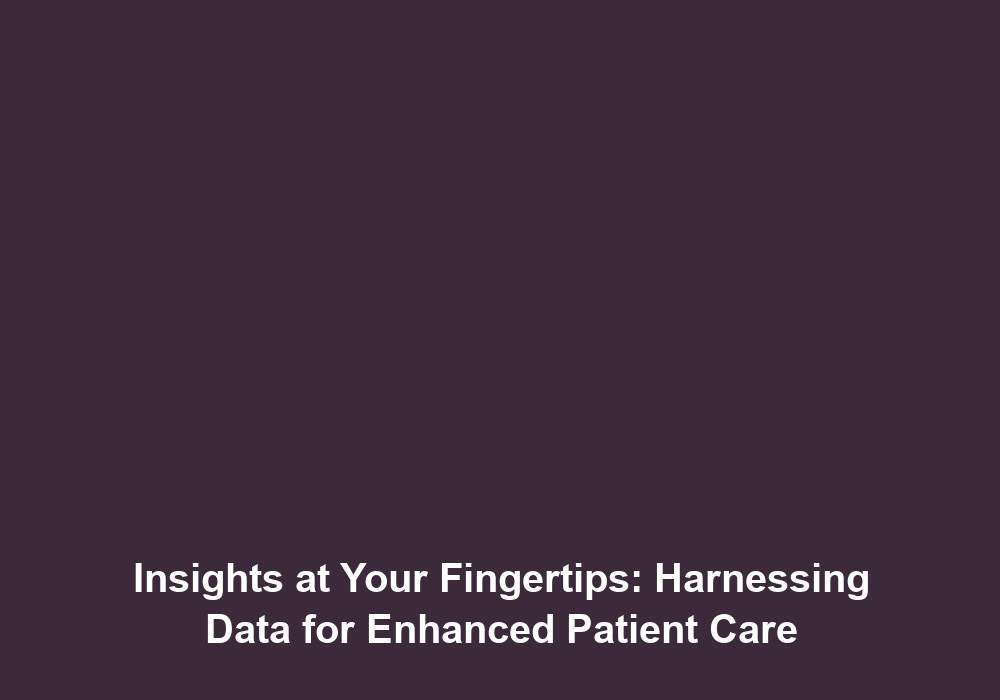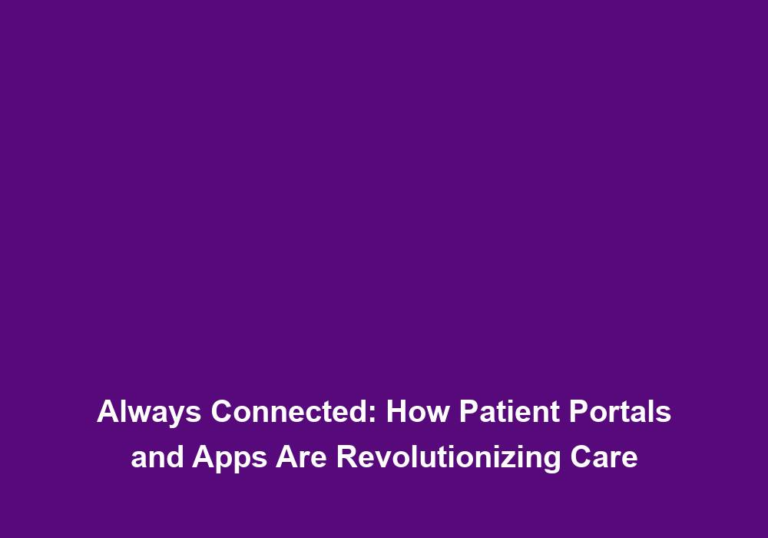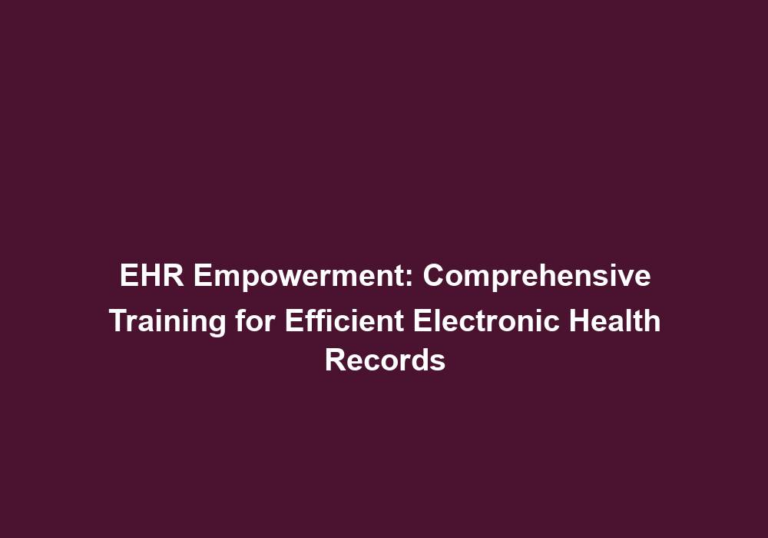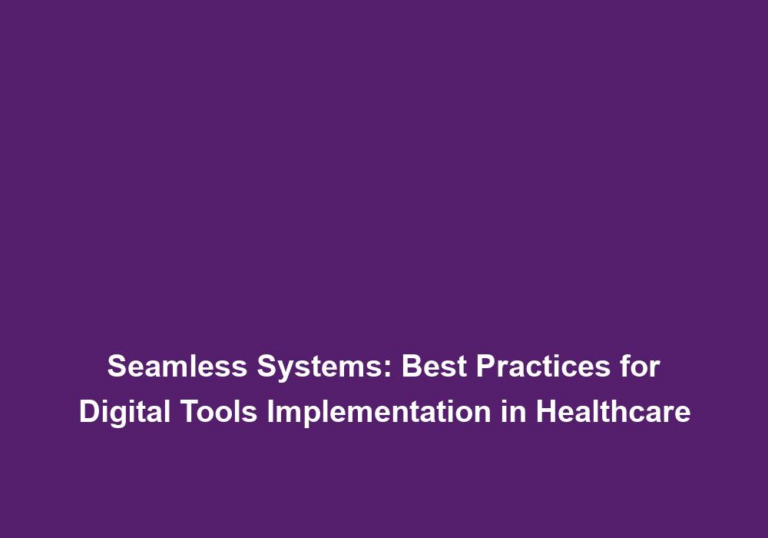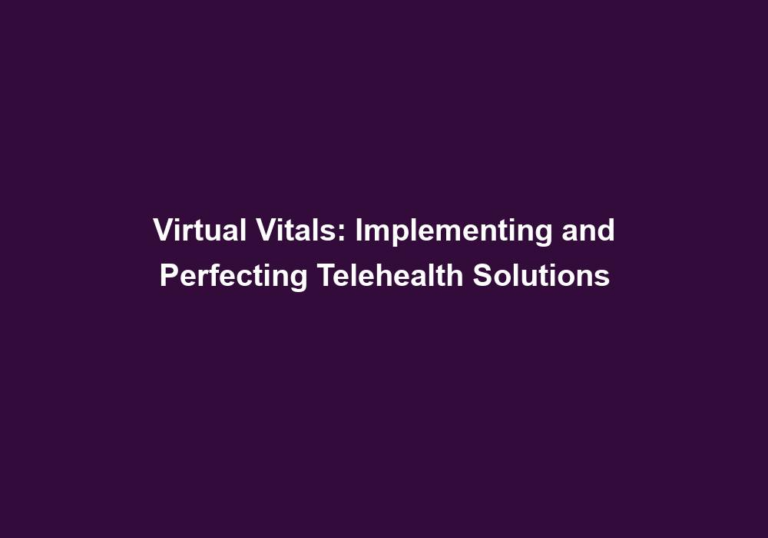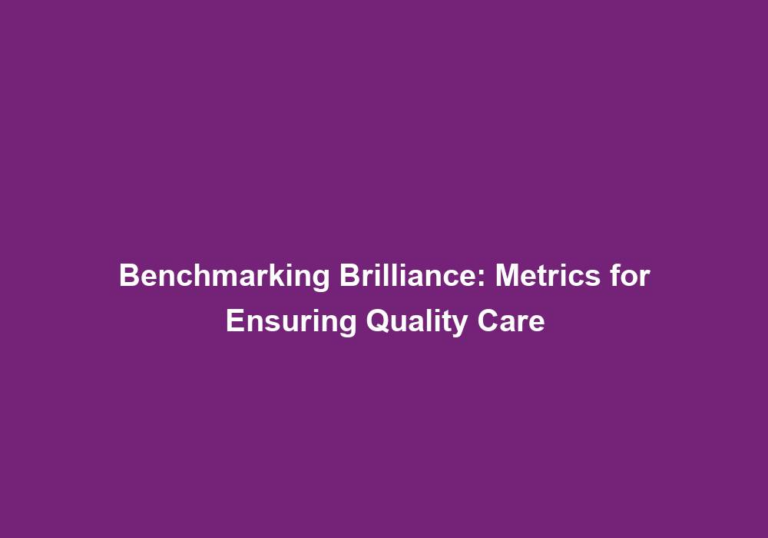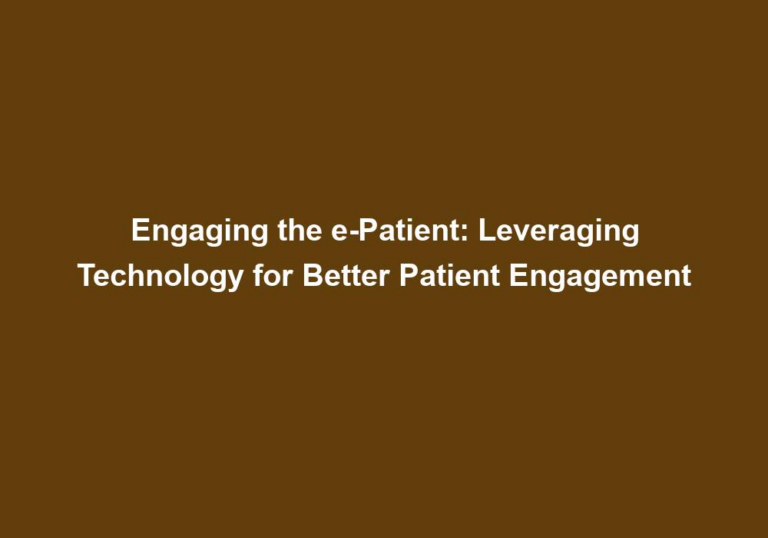Insights at Your Fingertips: Harnessing Data for Enhanced Patient Care
In today’s ever-evolving healthcare landscape, the availability and utilization of data have become essential for enhancing patient care. With the advancements in technology and the digitalization of medical records, healthcare providers have access to vast amounts of data that can be leveraged to gain valuable insights and improve patient outcomes. This article delves into the importance of harnessing data and how it can revolutionize patient care.
The Power of Data in Healthcare
Data serves as the foundation of evidence-based medicine and plays a pivotal role in transforming healthcare practices. By analyzing data, healthcare professionals can uncover patterns, trends, and correlations that provide valuable insights into patient care. This wealth of information enables healthcare providers to make informed decisions, optimize treatment plans, and ultimately improve patient outcomes.
Enhancing Diagnosis and Treatment
Data-driven insights have a significant impact on the diagnosis and treatment of patients. By thoroughly analyzing a patient’s medical history, symptoms, and test results, healthcare providers can accurately identify potential diseases or conditions. Utilizing data-driven diagnostic tools, such as machine learning algorithms, can further assist healthcare professionals in making precise and timely diagnoses.
Moreover, data can aid in tailoring personalized treatment plans for patients. By analyzing large datasets of patient outcomes and treatment responses, healthcare providers can identify the most effective treatment options for individuals. This approach, known as precision medicine, allows for targeted therapies that maximize the chance of success while minimizing potential side effects.
Improving Patient Safety through Data Analysis
Patient safety is of utmost concern in healthcare, and data analysis plays a crucial role in identifying and preventing potential risks. Through the analysis of patient data and adverse events, healthcare providers can identify patterns and trends that may indicate safety issues. This proactive approach enables healthcare organizations to implement preventive measures, such as revised protocols or staff training, to mitigate risks and ensure patient safety.
Furthermore, data analysis can help in detecting medication errors, monitoring for adverse drug reactions, and identifying potential medical device malfunctions. By continuously monitoring and analyzing data, healthcare providers can proactively address safety concerns and enhance patient care.
Data-Driven Decision Making in Healthcare Management
Data has revolutionized healthcare management by providing valuable insights into operational efficiency, resource allocation, and cost-effectiveness. Through the analysis of data related to patient flow, bed occupancy rates, and staffing levels, healthcare administrators can optimize resource allocation, leading to better patient care and improved operational efficiency.
Data analysis can also identify areas of improvement in healthcare services, such as reducing wait times, improving appointment scheduling, and streamlining administrative processes. By leveraging data, healthcare organizations can enhance patient satisfaction and optimize their overall operations.
Ethical Considerations and Data Privacy
While harnessing data has tremendous potential for improving patient care, it is essential to address ethical considerations and data privacy concerns. Data should be collected and analyzed in compliance with legal and ethical standards to protect patient privacy and confidentiality. Robust security measures must be in place to safeguard sensitive patient information and prevent unauthorized access.
Healthcare providers should also ensure transparency in data collection and usage. Patients should be informed about how their data will be used and have the option to provide informed consent. Additionally, healthcare organizations should adhere to data governance policies and standards to maintain the integrity and security of the data they collect.
Conclusion
Data-driven insights have the potential to revolutionize patient care by providing healthcare providers with valuable information for diagnosis, treatment, patient safety, and operational efficiency. By harnessing the power of data, healthcare organizations can make informed decisions, optimize treatment plans, and ultimately enhance patient outcomes. However, it is crucial to address ethical considerations and data privacy concerns to ensure the responsible and secure utilization of data in healthcare. With insights at their fingertips, healthcare providers can usher in a new era of patient care that is personalized, targeted, and efficient.

